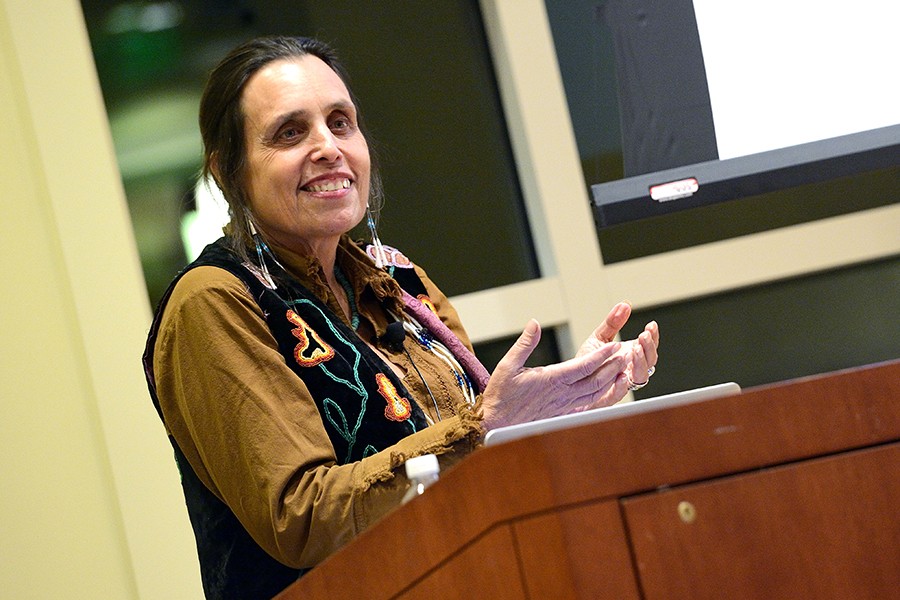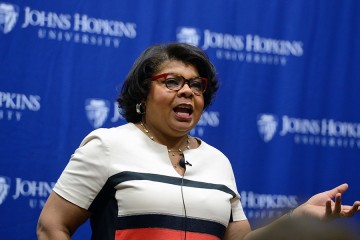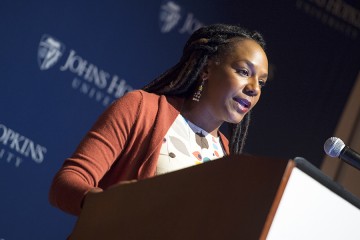Winona LaDuke communicated her visions for a multicultural democracy and a sustainable economy with wit, anecdotes, facts, and figures on Wednesday night to an overflow crowd at Johns Hopkins University's Mason Hall auditorium.
LaDuke—a Native American activist, environmentalist, and advocate for women's and children's right—had one theme during her presentation as part of the JHU Forums on Race in America: "Time to move on."
She said that society needed to move on from a worldview that has everything to do with building empires, growing crops that will not withstand climate change, creating clothing made of cotton raised with pesticides, building pipelines through the sacred homes of Native people, basing the economy on exploitation rather than life, allowing the rights of corporations to supersede that of nature, and failing to understand the importance of indigenous people
"The paradigm that got us into the problems we are facing today is not the paradigm that is going to get us out," said LaDuke. "And it would be important to have the courage to figure out some of these solutions together, and to recognize that indigenous people's knowledge is pretty significant knowledge—thousands of years in the same place without messing stuff up."
LaDuke is the founder of the Indigenous Women's Network and the White Earth Land Recovery Project, executive director of Honor the Earth, and is part of the Ojibwe or Chippewa Tribe in Minnesota. She is a water protector who has spent a large part of her life battling corporations who seek to build pipelines through the lands of Native American people, including the Dakota Access Pipeline.
Before the start of her talk, Lance Fisher of the Northern Cheyenne Tribe and Mark Herrera of the Seminole Tribe of Florida performed an honor song for LaDuke, who Herrera called "a Native American Icon."
LaDuke narrated stories from her life and others' that demonstrated the struggles and hate that Native people have endured.
"The economics of this country are predicated on the idea that you can take anything you want," she said. "So long as you have that system, our rights are going to continue to be violated."
However, the problems of the environment and economy, she said, are everybody's. She raised the question of what the world will look like 50 and 100 years from now, as a result of climate change.
"It's time to figure out what we are going to do," LaDuke said.
Members of the Indigenous Students at Hopkins, which is in the process of becoming an official student organization, were among those who came to see LaDuke speak.
Joel Espinoza, a first-year student and future vice president of the club, said he enjoyed LaDuke's stories of her relationship with corn, and how they helped to explain the way Native culture intertwines with the environment.
"These environmental issues affect us all. We are all living on this Earth," Espinoza said. "Even small developments that you don't think make that large of a difference—they really do, and that's a sign that we can work together toward change."
Posted in Student Life, Politics+Society










